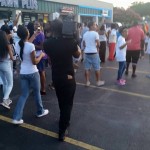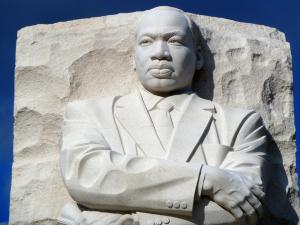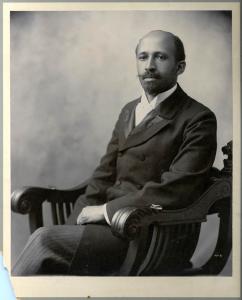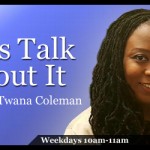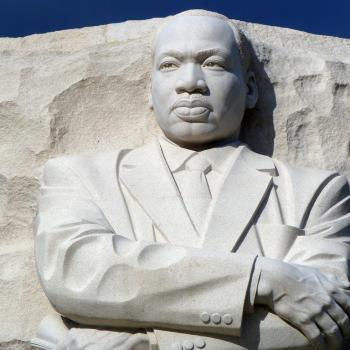R3 founder and managing editor, Dr. Andre E. Johnson, will offer the Topics in Rhetoric seminar class for the Fall 2015 term titled, “They Make This World So Damn Uncomfortable”: The African American Prophetic Tradition.” Dr. Johnson will teach the class on Thursday Nights starting August 27, 2015 from 5:30pm-8:30pm as part of the Graduate Program in Communication at the University of Memphis. Classes in the Topics of Rhetoric seminar typically focus on an important aspect of the history, theory, or criticism of rhetoric. Moreover, the class also challenges students to consider the core question of rhetoric’s role in the diverse settings of American culture and focuses on rhetoric’s influence on the multiple meanings of American citizenship and human identity. The course description and required texts for the class are below.
“[S]oul-torn strength of those who can never sit still and silent while the disinherited and the dammed clog our gutters and gasp their lives out on our front porches. These are men who go down in the blood and dust of battle. They say ugly things to an ugly world. They spew the lukewarm fence straddlers out of their mounts, like God of old; they cry aloud and spare not; they shout from the housetops, and they make this world so damned uncomfortable with its nasty burden of evil that it tries to get the good and does get better”-W.E.B. DuBois, 1913
Course Description:
Students in this survey class will examine the prophetic rhetorical tradition of African Americans. By engaging in a careful reading of texts that make up the African American oratorical and literary canons, students will examine how the African American prophetic tradition builds, forms, and transforms its audiences and communities. Moreover, students will examine how this rhetoric critiques, challenges and charges all of society to live up to the ideals which it espouses and finally how speakers adopt a “prophetic persona” in the delivery of these messages. In addition, the class will place emphasis on the rhetorical strategies used and how these strategies changed and/or remained the same over time.
Required Texts:
Foner, Phillip. Lift Every Voice: African American Oratory 1787-1900 (University of Alabama Press, 1998)
Hobson, Christopher. The Mount of Vision: African American Prophetic Tradition, 1800-1950. (Oxford University Press, 2012)
Houck, Davis W. and David E. Dixon: Rhetoric, Religion, and the Civil Rights Movement (Baylor University Press, 2006)
Johnson, Andre E. The Forgotten Prophet: Bishop Henry McNeal Turner and the African American Prophetic Tradition (Lexington Books, 2012)
Logan, Shirley Wilson. With Pen and Voice: A Critical Anthology of Nineteenth-Century African American Women (Southern Illinois, 1995)
Simmons, Martha and Frank Thomas. Preaching with Sacred Fire: An Anthology of African American Preaching (W.W. Norton, 2010)
West, Cornel and Christa Buschendorf. Black Prophetic Fire. (Beacon Press, 2014)
Suggested Texts
Bercovitch, Sacvan. The American Jeremiad. (University of Wisconsin Press, 1978)
Bacon, Jacqueline. The Humblest May Stand Forth: Rhetoric, Empowerment and Abolition (University of South Carolina Press, 2002)
A Voice That Could Stir an Army: Fannie Lou Hamer and the Rhetoric of the Black Freedom Movement (University of Mississippi Press, 2014)
Darsey, James. Prophetic Tradition and Radical Rhetoric in America. (NYU Press, 1999)
Harrell, Willie. Origins of the African American Jeremiad: The Rhetorical Strategies of Social Protest and Activism, 1760-1861 (McFarland 2011)
Haywood, Chanta M. Prophesying Daughters: Black Women Preachers and the Word, 1823-1913 (University of Missouri, 2003)
Howard- Pitney, David: The African American Jeremiad Revised: Appeals for Justice in America (Temple Univ. Press, 2005)
Hughes, Richard T. Myths America Lives By (Univ. of Chicago Press, 2004)
Stancliff, Michael. Frances Ellen Watkins Harper: African American Reform Rhetoric and the Rise of a Modern Nation State (Studies in American Popular History and Culture) Rutledge, 2010
Terrill, Robert. Malcolm X: Inventing Racial Judgment. Michigan State University Press, 2007
Moses, Wilson Jeremiah. Black Messiahs and Uncle Toms: Social and Literary Manipulations of a Religious Myth. University Park: Pennsylvania State University Press. 1982.
West, Cornel. Democracy Matters:Winning the Fight Against Imperialism. New York. Penguin.



